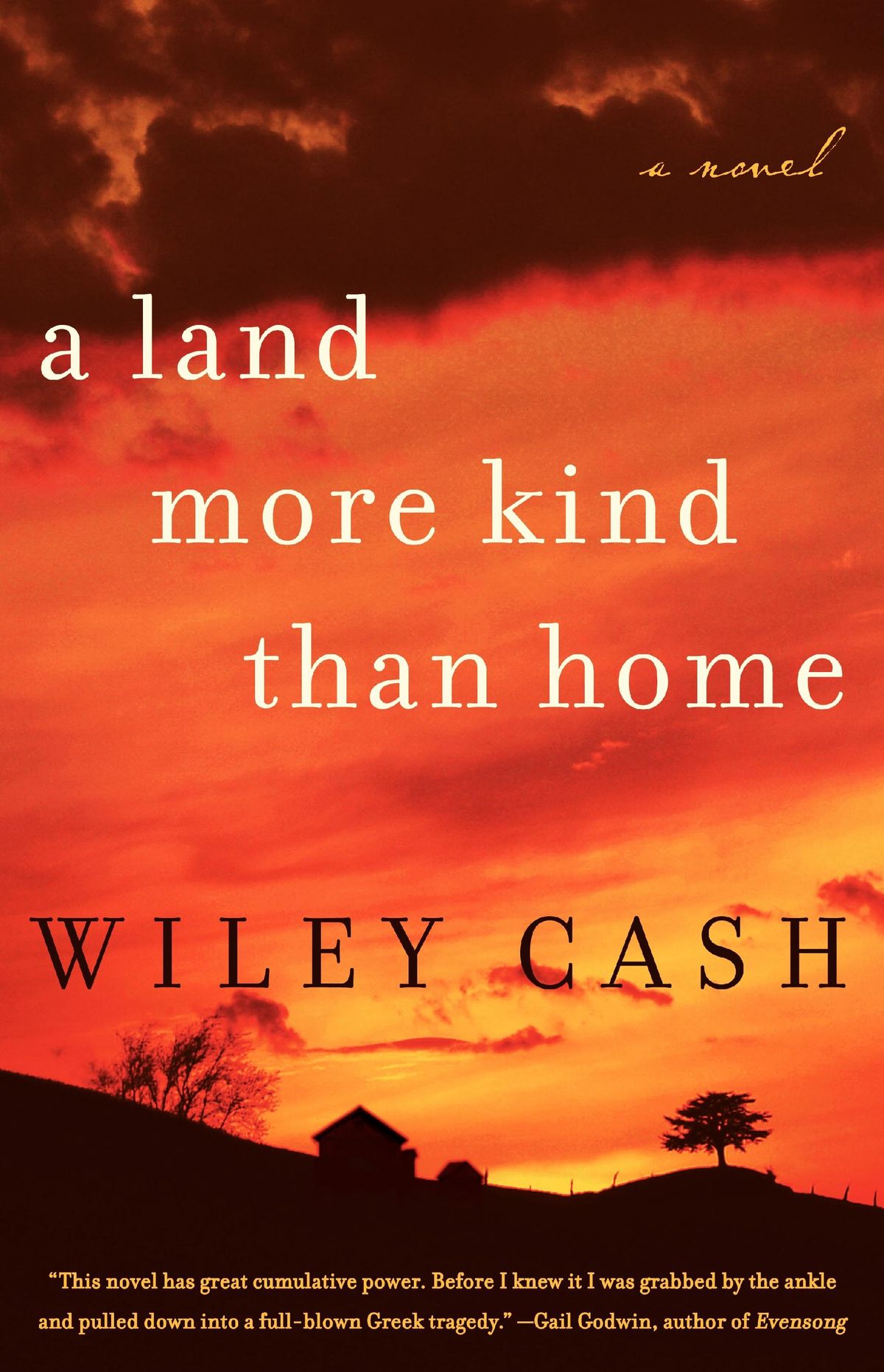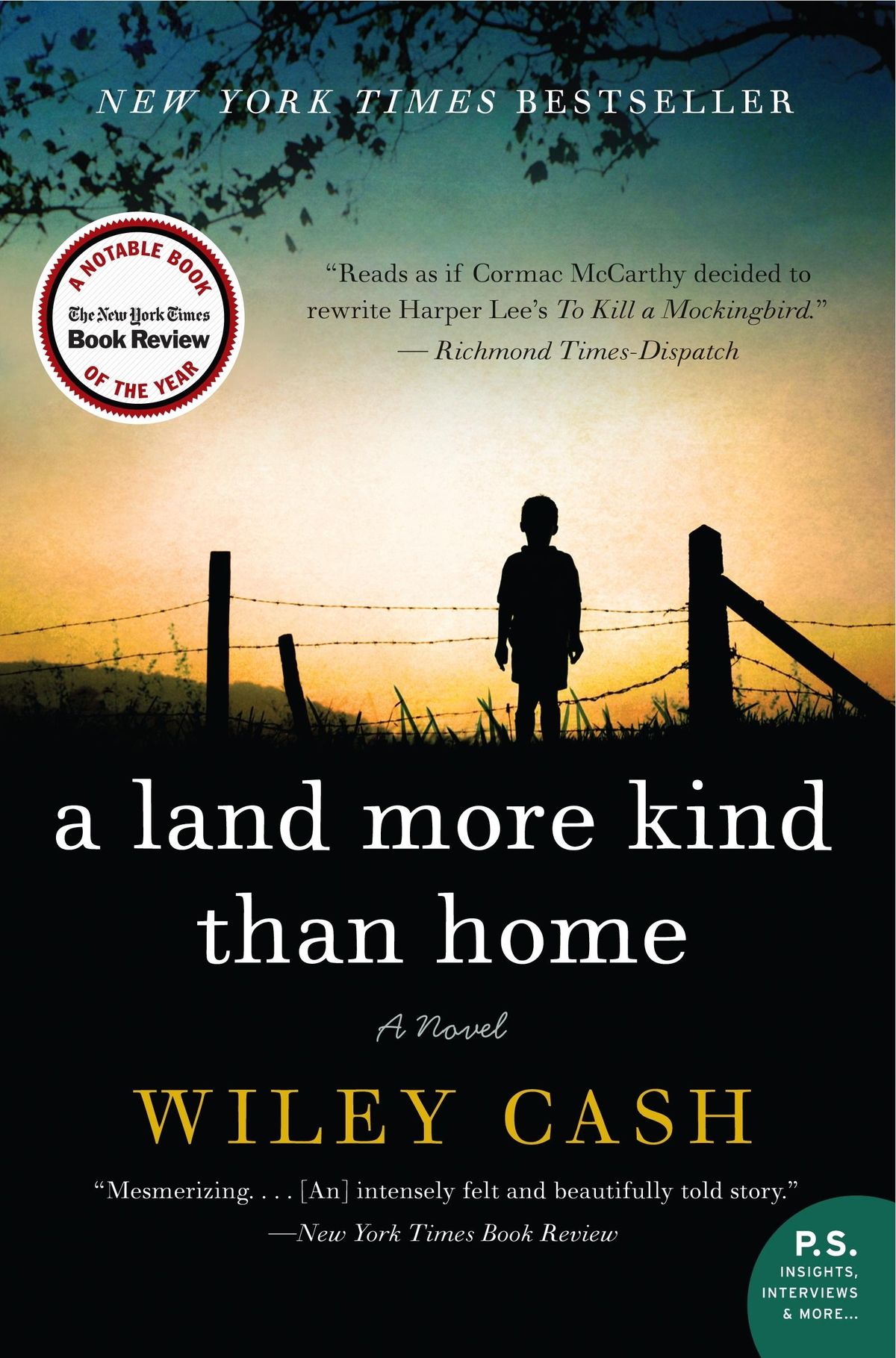Spokane is Reading: Wiley Cash’s ‘A Land More Kind Than Home’ is steeped in Southern flavor
“A Land More Kind Than Home” is the selection for the 2017 edition of Spokane is Reading. Author Wiley Cash will speak in Spokane and Spokane Valley on Thursday.
Ask Wiley Cash about Western North Carolina, and his love for the place is palpable. He’ll describe a lush landscape with four distinct but mild seasons. He’ll talk about a green place flowing with fresh water. He’s describing home.
But don’t mistake reverence for sugarcoating.
While there’s a “nurturing safety” to Cash’s Appalachia, “there’s also kind of a feeling of isolation, of being a little shut out from the world or a little hemmed in by the landscape,” Cash said.
That landscape, with its push-pull of beauty and darkness, nurture and need, serves as the setting for Cash’s first novel, “A Land More Kind Than Home,” the Spokane is Reading pick for 2017.
“I wanted parts of it to feel very nurturing and very safe, but I also wanted parts of it to feel really isolating for the characters,” Cash said of the New York Times bestselling novel, which was also a New York Times Book Review Notable Book of the Year in 2012.
Those characters include the book’s three narrators: town matriarch and former midwife Adelaide Lyle, 9-year-old Jess Hall and county Sheriff Clem Barefield. Cash’s prose immediately evokes the juxtapositions of the small community that surrounds them, contrasting Adelaide’s vivid memories of an idyllic small town with its less-savory 1980s present.
It’s through Adelaide that we first hear about Carson Chambliss, the charismatic preacher who’s as menacing as the snakes he brings into the local church. Chambliss moved the congregation into an empty storefront, changed its name and convinced even “holy people” that, as Adelaide puts it, “it was safe to challenge the will of God” by handling rattlesnakes and copperheads.
From Adelaide we also get a hint of the tragedy to come inside the storefront church with its papered-over windows. It’s a tragedy that shapes the town, its people and Cash’s storyline.
Cash, who was raised Southern Baptist, said he’s never witnessed Pentecostal snake-handling firsthand, but he knows it’s deeply imbedded in the charismatic traditions of Appalachia. “I’ve heard people speak in tongues, I’ve seen faith healings, I’ve seen that kind of thing happen, though not snake handling, and I just wanted to write about it,” he said. “I wanted to write about things that I knew growing up and try to make sense of them.”
While writing the book, he considered visiting a church where snake-handling occurs, but ultimately decided against it. “It just felt kind of disingenuous. … These people believe what they’re doing is the absolute truth, and I felt like I would be taking advantage of them in some way if I were to go kind of sneak in,” he said.
The tragedy Adelaide hints at in the book’s opening pages was drawn from a real event: a congregant being smothered to death during a laying on of hands in a storefront church. Cash became fascinated with “this group of believers that’s going to believe something to death.”
Though the actual event occurred in the Midwest, Cash could easily see something similar happening in his part of the country. “I knew that a church that would be laying hands on a young boy in the mid-1980s that would want to keep a tragedy like that a secret would be like an insular, isolated church … and in this part of the country a church that worshiped that way would be handling snakes. But I didn’t set out to write a novel about snake handling, I just genuinely set out to write an accurate novel about this world.”
The novel’s themes and complexities drew the attention of Patrick Roewe and the rest of the Spokane is Reading selection committee. “ ‘A Land More Kind Than Home’ just resonated with us long after we put the book down,” said Roewe, executive director of the Spokane County Library District and president of Spokane is Reading.
“The story itself is both compelling and thought-provoking, and we felt that its thematic richness would promote good literary conversation, which is what Spokane is Reading is all about,” Roewe said.
Each year, the Spokane is Reading selection committee considers suggestions from the public and from committee members, who represent the organization’s sponsors – the Spokane County Library District, Spokane Public Library and Auntie’s Bookstore. Roewe said the committee looks for a book they think will resonate well with the public, and one that’s available in a variety of formats – including digital, large-print and audio editions – in order to reach a larger audience.
“Between the three sponsors, we have our collective finger on the pulse of what people are reading throughout Spokane County, and people have responded really well to each year’s book,” Roewe said.
Past selections for Spokane is Reading, which began in 2001, include Emily St. John Mandel’s “Station Eleven,” Karen Russell’s “Swamplandia!,” Timothy Egan’s “The Big Burn,” and Sherman Alexie’s “The Absolutely True Diary of a Part-Time Indian.”
Cash’s visit to Spokane comes as he’s on tour promoting his most recent novel, “The Last Ballad,” which came out Oct. 3. When he spoke by phone from Dallas, he’d been touring for three weeks, spending a week on the road, then a day at home with his wife and two young children in Wilmington, N.C. He’ll continue that pattern until mid-December.
Cash acknowledged that it might be a bit disorienting to talk about his first book while he’s been so focused on his third, but he isn’t too concerned, given his “incredible emotional attachment” to “A Land More Kind Than Home.”
“Talking about your books is kind of like talking about your kids,” he said. “It’s like flipping back through the album and saying, ‘Oh, that’s what you looked like when you were 2! This is the music you liked!’ It doesn’t take a lot to go back into that headspace and heart space and to put yourself back there and think about the book, what it felt like to write it, what was going through your head when you were writing it, kind of the choices you made when you were writing it.”
Cash’s work has been praised for its pitch-perfect Southern dialect, unflinching insights into family and adolescence, and a balance of tenderness with suspense. His style has been described as Southern Gothic by the likes of NPR, Publishers Weekly and the Washington Post, and “A Land More Kind Than Home” bears several hallmarks of the genre – there’s something sinister in the town of Marshall, eccentric characters with lives permeated by poverty and violence, and a strong sense of alienation to the landscape.
But Cash doesn’t give such labels much credence. To call him a Southern Gothic writer, Cash said, would “hint that I have some kind of awareness of what I’m doing while I’m doing it, and I don’t.”
The “Southern” part of that label is one he plans to keep, though. “I think I’ll always write about North Carolina; I can’t imagine that I’ll ever write about another place, but I think the vein in which I write may change novel to novel.”
Just don’t expect him to sugarcoat it.
“I’m a pretty political person. I don’t find it hard to tell the truth about things. Even things that I may be forced to change my mind on later,” Cash said. “And so I don’t really find it hard to tell the truth about the places that I love and the places that I’m from. I mean, if you can’t tell the truth about places you love, then I think you’re doing them a disservice.”


